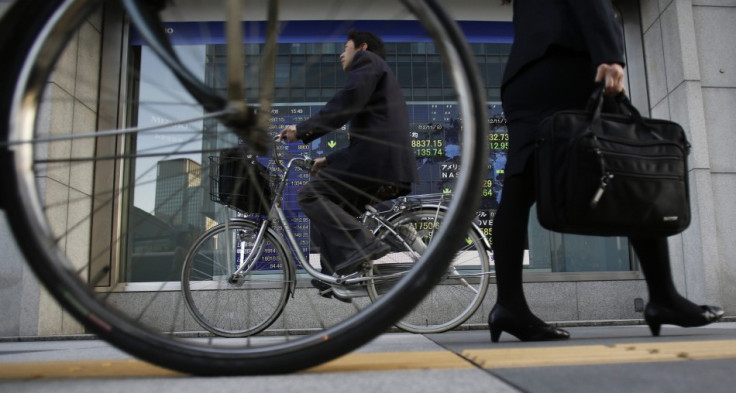Asian Stocks Drop on China Property-Sector Fears and Growth Concerns

Most Asian markets have slumped in the morning trade as China's property-control speculations and global economic concerns weighed on investor sentiments, although Tokyo remained positive on stimulus optimism.
The Nikkei gained 0.59 percent or 68.52 points to 11674.90. South Korea's KOSPI fell 0.29 percent or 5.85 points to 2020.64. Australia's S&P/ASX 200 dropped 1.14 percent or 57.90 points to 5028.20.
China's Shanghai Composite Index plunged 2.28 percent or 53.79 points to 2305.72. In Hong Kong, the Hang Seng was down 1.03 percent or 234.99 points to 22645.23.
The lacklustre Asian performance comes after the US stocks closed the previous week with modest gains. The US political developments had once again come to focus, barely months after a last-minute wrangle in Washington to help save the "fiscal cliff" crisis.
After much debates and discussions, the US lawmakers failed to reach a consensus on the sweeping spending cuts that kicked in on 1 March, feared by many to have a devastating effect on the global economy. Faced with no other option, President Barack Obama has signed the order to implement the spending cuts.
However, the budget concerns were offset by a better-than-expected US economic data released towards the end of the previous week. According to data from the Institute for Supply Management (ISM), the US factory activity rose to 54.2, for the third consecutive month in February. Data from the country's commerce department showed that consumer spending picked up moderately in January.
The upbeat reports pushed the dollar higher against the yen towards the previous week's end, helping exporter stocks in Tokyo and underlining hopes that the yen could continue to remain weak. But the yen has strengthened against its peers during the day as traders remained cautious of the eurozone concerns after the recent Italy elections.
In China, concerns that the government will look to tighten its controls over the property sector weighed on investor sentiments. Last week, the State Council said that it may increase the mandatory down payments and lending rates for second-home-buyers in cities that are seeing an unprecedented price rise. The real-estate sector is a major contributor to China's economic growth, directly contributing to about 10 percent of the Gross Domestic Product (GDP). Tightening the sector has brought-in concerns on the country's recovery efforts.
Major Movers
Real estate stocks climbed in Tokyo. Heiwa Real Estate Company was up 8.42 percent while Sumitomo Realty and Development Company gained 5.57 percent. Mitsubishi Estate Company added 5.10 percent.
Properties slumped in Hong Kong. China Resources Land fell 7.52 percent while China Overseas Land and Investment slipped 4.98 percent. Sun Hung Kai Properties was down 2.21 percent.
In mainland China, the Beijing Capital Development plunged 10.04 percent, followed by Jiangsu Phoenix Investment Property Company which fell 10 percent and Guangzhou Pearl River Industrial Development Company which was down 9.99 percent.
© Copyright IBTimes 2025. All rights reserved.


















